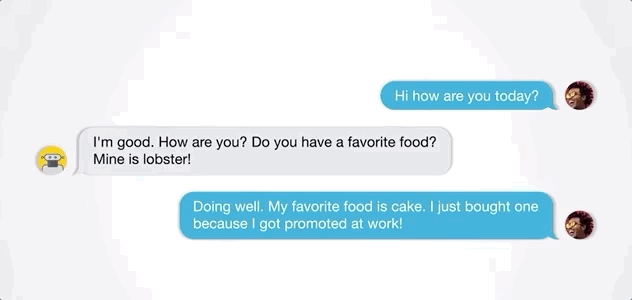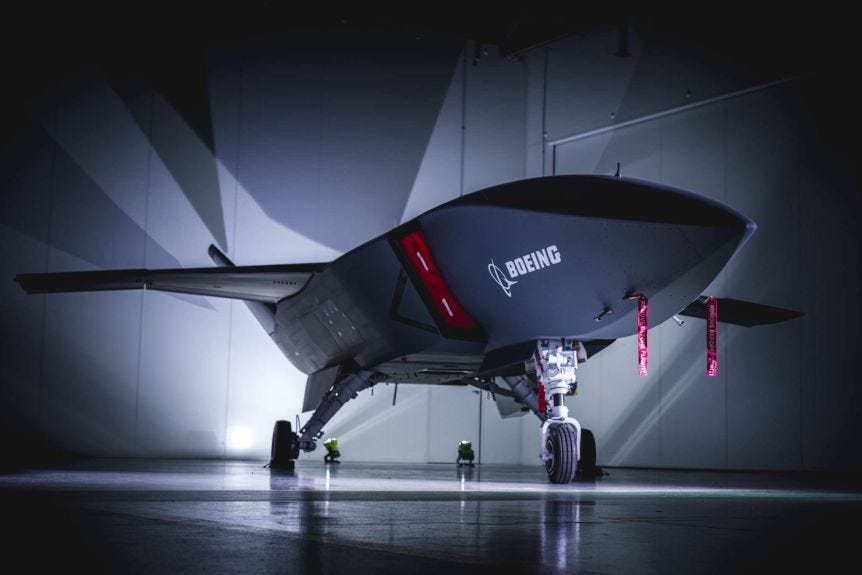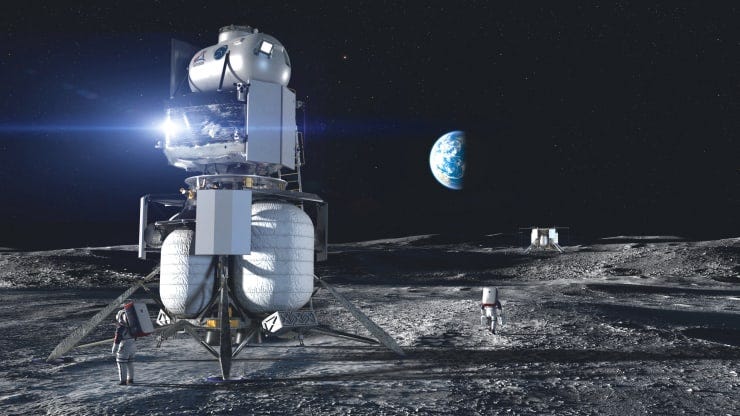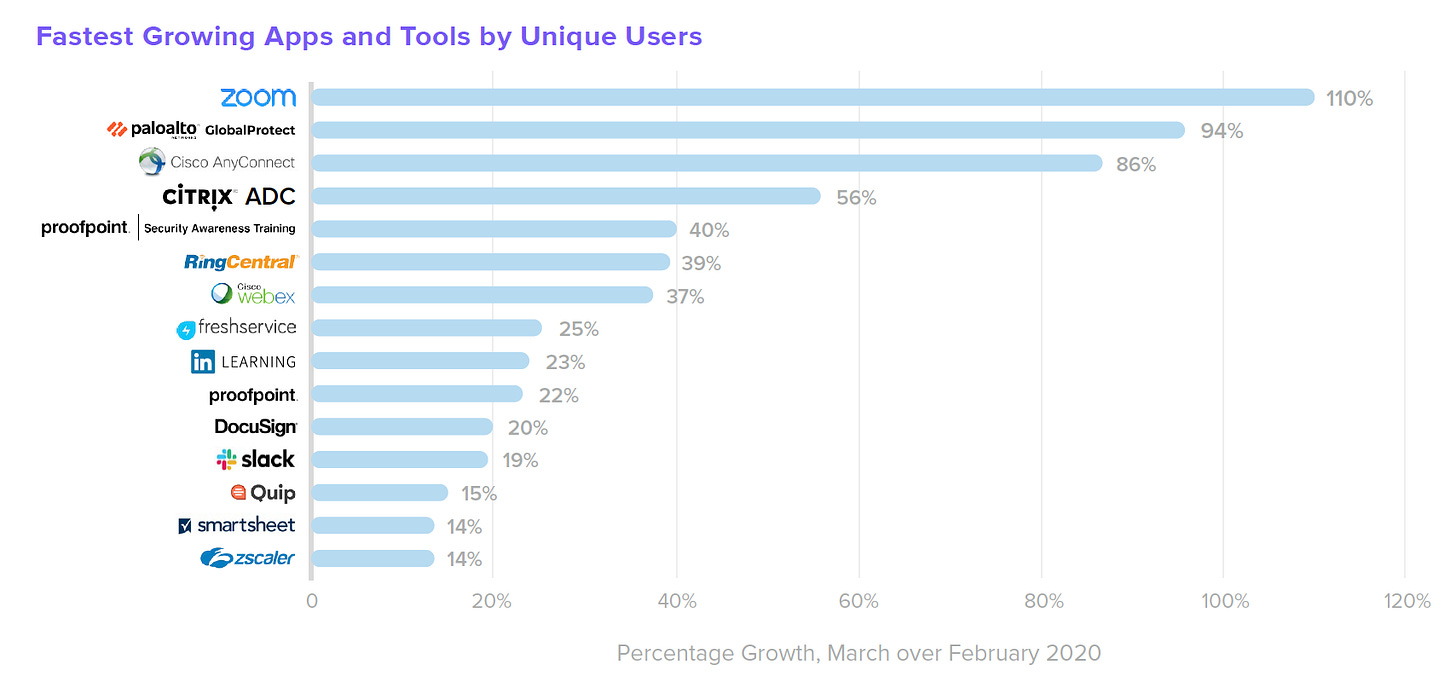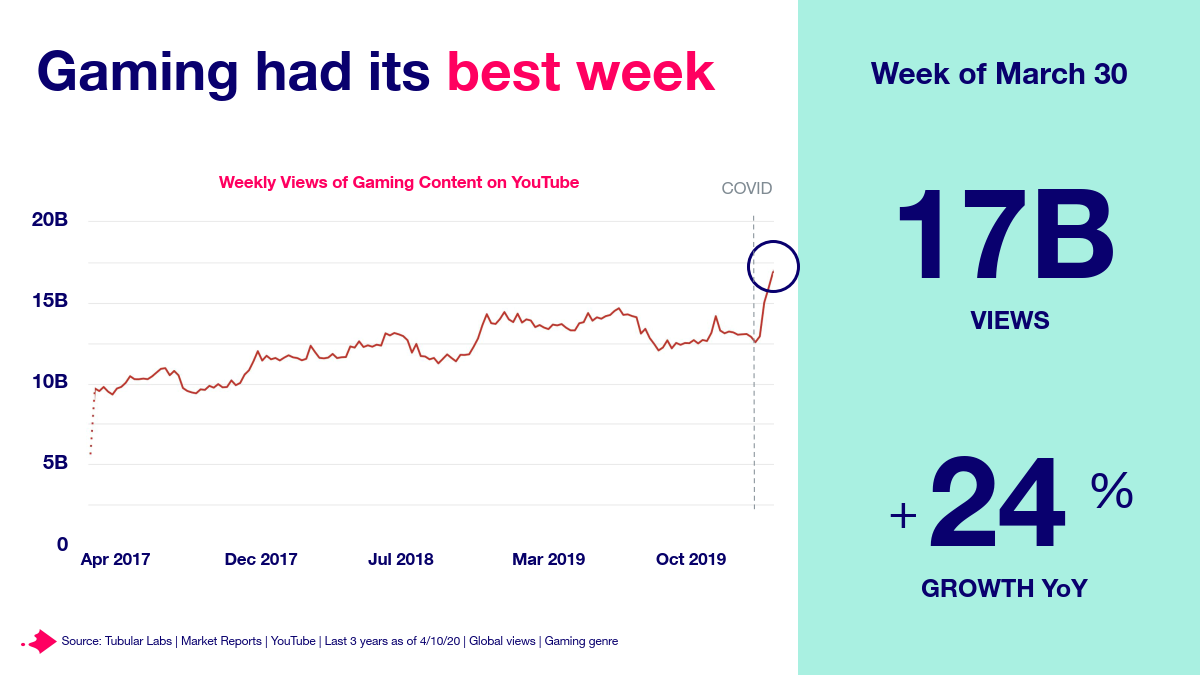Here’s your weekly wrap of technology, innovation, and finance news.
? Artificial Intelligence
Scientists at Salesforce have developed The AI Economist, a system that tries to identify the optimal tax policies for a simulated economy using a deep reinforcement learning framework. The simulated economy that they try to optimise is relatively simple, at least for now.
Google released Meena, its state-of-the-art chatbot, back in February. Now Facebook has leapt ahead with Blender, a chatbot that “blends a diverse set of conversational skills — including empathy, knowledge, and personality — together in one system.” According to the Facebook AI Blog, 67% of evaluators found Blender sounded more human than Meena, and 75% said they’d rather have a long conversation with Blender than with Meena. Poor Meena.
? Robotics and Attack Drones
Embodied, a LA startup started by a USC robotics professor and the former CTO of iRobot, has unveiled a childhood robot called Moxie. If the Moxie promotional video is accurate, then it does look pretty impressive though I’m not sure if it’s needed. The robot will cost you $1,499 and reservations are now open.
Boeing unveiled an Australian-designed attack drone prototype, the Loyal Wingman, that uses AI to target enemies. The prototype is now starting ground testing, with taxi tests and flight tests due later this year. Boeing expects mass production to begin by the middle of the decade.
? Chips and Computing
Amazon Web Services (AWS) quarterly revenue increased by 33% on last year and topped $10 billion for the first time.
If you’re interested in how distributed computer systems work, this interview with NVIDIA’s CEO Jensen Huang provides an excellent overview of datacentre architecture and why NVIDIA’s acquisition of Mellanox last year made sense.
And the combination of Mellanox and Nvidia makes the most sense because we drive computing to the limits more than anybody else and we expose the weaknesses of all of the other elements of the computer more severely and more quickly than anybody else. And if we can solve issues, we solve them for everybody.
A new AI chip can perform image recognition tasks in nanoseconds which is far faster than existing sensors, but it has the drawback of currently only working on tiny images. The researchers believe that scaling it up to work on much larger sizes is straightforward (see their paper in Nature).
A sensor that captures and processes an image at the same time, without converting or passing around data, makes image recognition much faster using much less power. The design, published in Nature today by researchers at the Institute of Photonics in Vienna, Austria, mimics the way animals’ eyes pre-process visual information before passing it on to the brain.
?️ Space
NASA wants to put astronauts on the Moon again by 2024 and has awarded contracts worth $967 million to three companies (Blue Origin, SpaceX, Dynetics) to begin study work on lunar landers over the next ten months. After ten months, NASA will pick one or more winners to start building the spacecraft.
NASA also entered into a partnership with Virgin Galactic to help develop supersonic point-to-point air travel. Any financial terms weren’t disclosed.
China’s space ambitions are also growing. The country successfully launched its largest rocket into space for the fourth time, this time carrying an uncrewed trial version of its next-generation spacecraft. China plans to use the rockets to bring heavy modules into space that will be used to assemble a low earth orbit space station by 2022.
This isn’t news, but I finally started watching The Expanse in April and finished the last episode of Season 4 a few days ago — it was great! ??
? Health
Biologists have invented a new way to fight viruses with llama blood and molecular superglue. Llamas (and camels, and sharks) are special because they produce mini-antibodies that other animals (including humans) do not.
All untreated mice infected with Rift Valley fever virus died within 3 days, but more than 20% of the rodents that received a trio of linked antibodies were still alive after 10 days. The approach also worked against Schmallenberg virus: One antibody combination spared all of the mice, whereas control animals perished within 5 days, the scientists report in the journal eLife.
A new machine can keep livers alive outside the body for up to a week, which is enough time for the liver to start repairing itself. This could help patients with liver cancer (and other transplant recipients over time), but further studies are needed to assess any long-term effects of the machine.
“We decided to [study the livers] for one week because this is the amount of time you need for a liver to regenerate” in patients who have had part of the organ removed, says Pierre-Alain Clavien, head of surgery and transplantation at University Hospital Zurich and senior author on a paper describing the research. He says this preservation technique could especially benefit some liver cancer patients, who could have noncancerous portions of their own livers kept alive for later reimplantation to circumvent problems related to tissue rejection.
Drinking coffee appears to cause epigenetic changes to your DNA which could explain its numerous health benefits.
The more cups of coffee a person drank per day, the more likely they were to have altered levels of methyl groups at 11 particular DNA sites. This was still true after age, body mass index, smoking, alcohol consumption and other factors that may have influenced the results were taken into account.
The methyl groups tended to be attached to genes that play roles in digestion, processing harmful chemicals and controlling inflammation.
? Working from Home
A survey by IBM found that 54% of 25,000 adults polled would like to be able to primarily work from home, 75% would like the option to work from home occasionally, and 40% of respondents felt strongly that their employer should offer opt-in remote work options.
The Atlantic argues that work from home is here to stay.
Many Americans were already couch laborers before this all started. Prior to the coronavirus outbreak, about 29 percent of college graduates worked from home at least some of the time. Even once coronavirus restrictions are eased, Bloom and others expect the proportion of Americans working from home to grow. “I could see it being totally standard for jobs that can be performed at home to allow two days at home” per week, he told me.
Warren Buffett questioned the future of offices at Berkshire Hathaway’s AGM, while also mentioning that Charlie Munger is spending his days on Zoom.
“The supply and demand for office space may change significantly,” Mr. Buffett said. “A lot of people have learned that they can work at home, or that there’s other methods of conducting their business than they might have thought from what they were doing a couple of years ago. When change happens in the world, you adjust to it.”
Okta’s 2020 Business @ Work (from Home) report suggests that Zoom, Palo Alto Networks, and Cisco are the winners in the remote work boom.
Zoom isn’t free from competition. Google made its videoconferencing service Google Meet free until the end of September while also incorporating it into Gmail. Microsoft unveiled that video conferencing on Teams saw more than 200 million participants in a single day in April, which compares to Zoom’s 300 million daily meeting participants by April 22.
A Japanese aquarium under lockdown asked people to video call with its lonely eels.
⚡ Other Snippets
Microsoft is working on augmented reality robot overlays that can bring virtual meetings to life.
A new camera developed at Caltech can capture 70 trillion frames per second which marks a new record.
Now seven times faster than that, Wang and his team believe that the CUSP technology could be used to probe the ultrafast world of fundamental physics and help create smaller and more sensitive electronics.
“We envision applications in a rich variety of extremely fast phenomena, such as ultrashort light propagation, wave propagation, nuclear fusion, photon transport in clouds and biological tissues, and fluorescent decay of biomolecules, among other things,” says Wang.
A new study finds that your brain replays waking experiences during sleep, called “offline replay”. This study is the first study that has directly observed this effect in humans.
Offline replay is thought to make memories stronger because it gradually incorporates them into the existing knowledge base in the neocortex — without disrupting the information that’s already there.
Practically, the study means sleep may be even more important than previously thought.
Disney+ now has 54.5 million subscribers as of May 4, which is up from 33.5 million as of March 28. The company originally targeted 60 million to 90 million subscribers by the end of its 2024 fiscal year.
Gaming content on YouTube and Facebook is growing significantly as people stay home according to a report from Tubular Labs with plenty of charts.
Have a great week.


